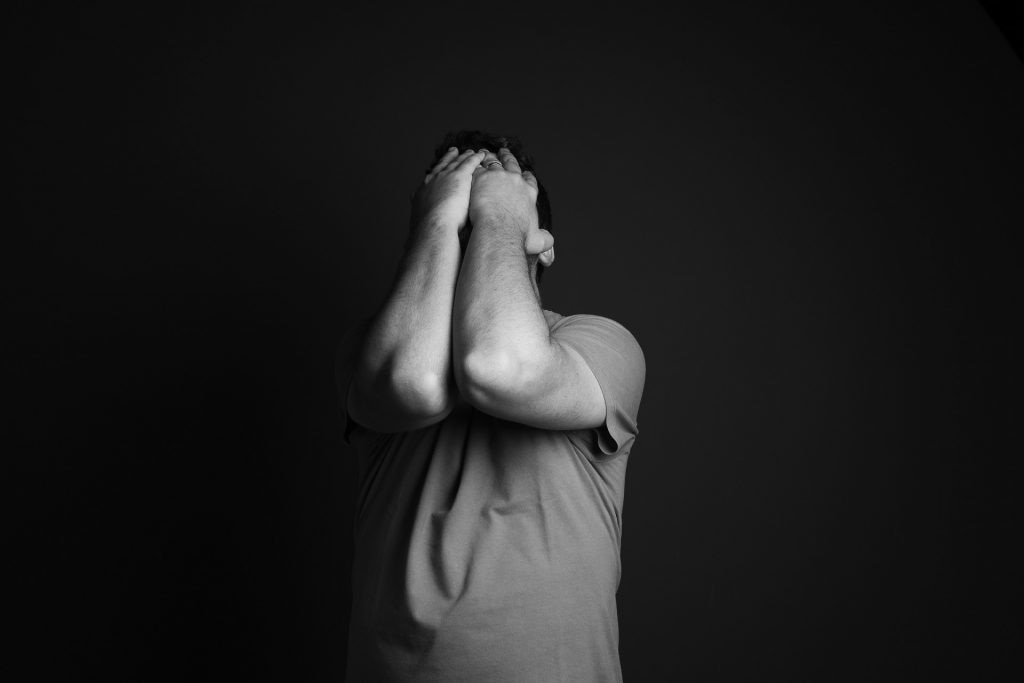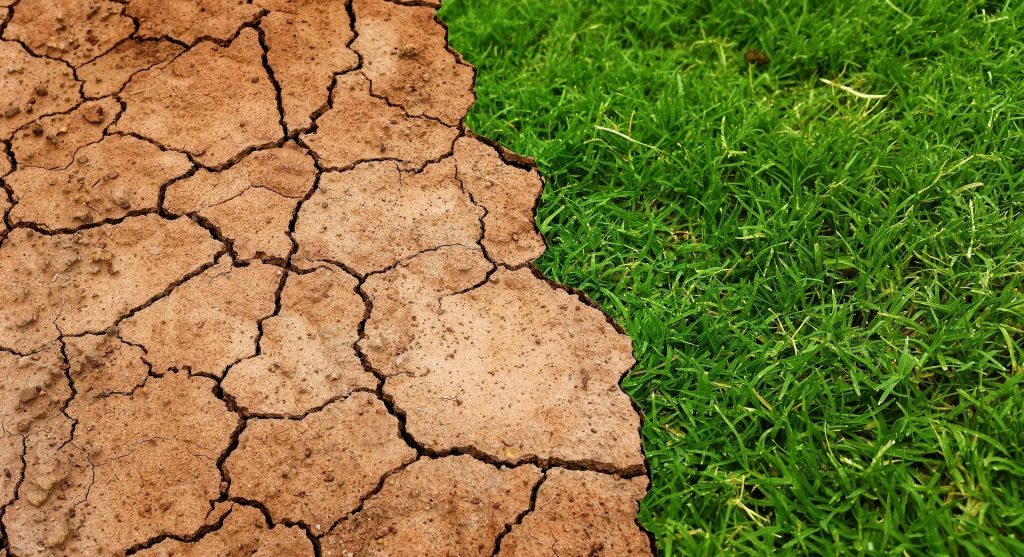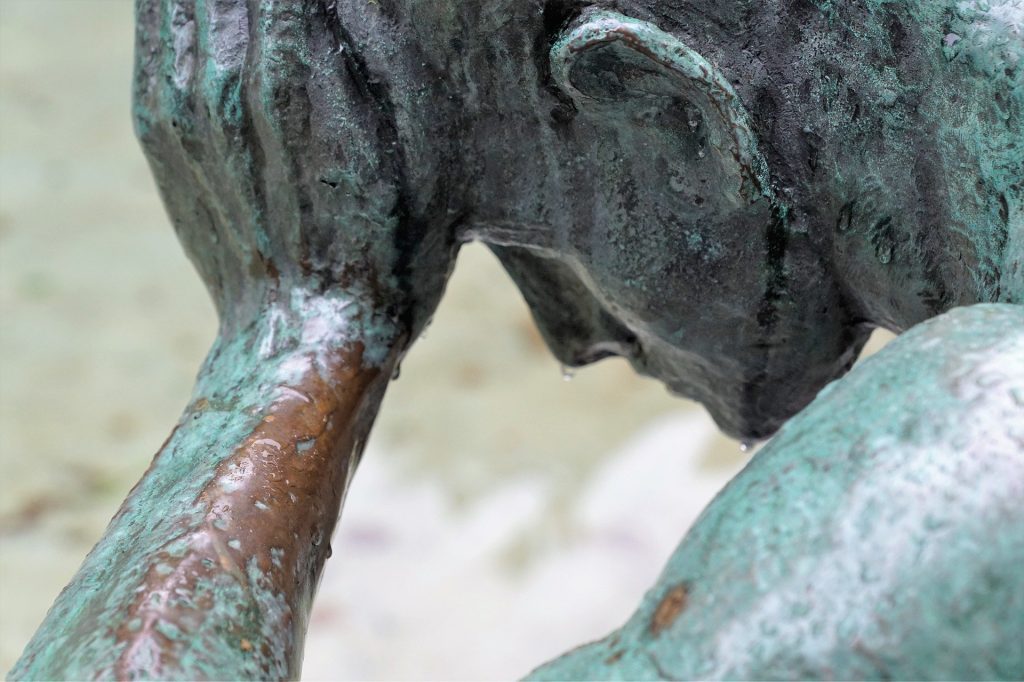Guidance regarding basic Islamic issues – which Hazrat Amirul Momineen, Khalifatul Masih Vaa has given on various occasions in his written correspondence and during MTA programmes – is being officially published below for everyone’s benefit.
Zaheer Ahmad Khan Head of Records Department, Private Secretariat, London
Hadith against wishing to die
Hazrat Amirul Momineen, Khalifatul Masih Vaa was asked about the authenticity of a hadith in which the Holy Prophetsa is reported to have said, “Do not harbour the wish to die!” The person also wrote that this hadith was not found in our Jamaat’s literature.

Huzooraa, in a letter dated 4 April 2019, gave the following reply:
“The hadith that you have referred to in your letter has been recorded in various books of hadith. Hazrat Imam Bukharirh and Hazrat Imam Muslimrh have also included it in their books. The precise wording of the hadith is as follows:
عَنْ أَنَسِ بْنِ مَالِكٍ رَضِيَ اللّٰهُ عَنْهُ قَالَ النَّبِيُّ صَلَّى اللّٰهُ عَلَيْهِ وَسَلَّمَ لَا يَتَمَنَّيَنَّ أَحَدُكُمْ الْمَوْتَ مِنْ ضُرٍّ أَصَابَهُ فَإِنْ كَانَ لَا بُدَّ فَاعِلًا فَلْيَقُلْ اللّٰهُمَّ أَحْيِنِيْ مَا كَانَتِ الْحَيَاةُ خَيْرًا لِي وَتَوَفَّنِيْ إِذَا كَانَتْ الْوَفَاةُ خَيْرًا لِيْ
“Hazrat Anasra bin Malik narrates that the Holy Prophetsa said, ‘None of you should wish for death because a calamity has befallen them, but if a person cannot help doing so, they should say: “O Allah! Keep me alive as long as life is better for me, and let me die if death becomes better for me.’” (Sahih al-Bukhari, Kitab al-Mardaa, Bab tamanni al-mareed al-maut)
“In the Jamaat’s literature, this hadith is mentioned in the commentary of Sahih al-Bukhari by Hazrat Syed Zainul Abidin Waliullah Shah Sahibra. I have also narrated this hadith during the Friday Sermon of 17 August 2012, stating that the Holy Prophetsa had said, ‘Let no man desire death.’ The reason for this is that if he is good, he may increase in good deeds and inherit the bounties of Allah the Exalted, and if he is wicked, he may be able to repent.”
Male cousin as a wali
On the occasion of a marriage, a paternal male cousin of the bride was appointed as her wali because her father had passed away. This arrangement was objected to by the rishta nata department.
Huzooraa, in a letter dated 14 January 2020, gave the following instructions in this regard:
“Respected Amir Sahib Canada has sent me a marriage registration case where the girl’s father has passed away and she also does not have any brother. The girl has appointed her paternal male cousin as the wali for her nikah. However, you have refused to register the marriage, saying that a paternal male cousin could not be a wali.

“Please, tell me according to which fiqh you have refused the registration because a paternal male cousin was appointed as the wali, whereas neither the girl’s father is alive nor does she have any brothers?
“According to the Ahmadiyya fiqh, after the father, the nearest blood relative of the girl who is present can become her wali. As a paternal male cousin is counted among blood relatives, he can therefore become the wali of a girl, provided that none of the immediate blood relatives is alive. So, please register her marriage.”
The true concept of Heaven and Hell
Hazrat Amirul Momineenaa was asked, “If the concept of physical Heaven and Hell is incorrect, then what are Heaven and Hell? What will Heaven and Hell look like after the Day of Judgement?
Huzooraa, in a letter, dated 4 February 2020, gave the following reply:
“Just as there are all kinds of ideas about Heaven and Hell in other religions, Muslims have also concocted erroneous ideas in their minds due to misunderstanding the statements of the Holy Quran and the ahadith about Heaven and Hell and due to their taking them literally. However, the Holy Quran and the ahadith have only given allegorical descriptions of Heaven and Hell in order to make man understand. The words describing Heaven and Hell have been used as metaphors and there is a different truth hidden behind them. Therefore, along with these allegorical descriptions, the Holy Quran also states:
فَلَا تَعْلَمُ نَفْسٌ مَا أُخْفِيَ لَهُمْ مِنْ قُرَّةِ أَعْيُنٍ جَزَاءً بِمَا كَانُوا يَعْمَلُونَ
“‘And no soul knows what joy of the eyes is kept hidden for them, as a reward for the (good) they used to do.’ [Surah al-Sajdah, Ch.32: V.18]
“Similarly, it has been narrated in a hadith that the Holy Prophetsa said that the bounties of Heaven were such that:
مَا لَا عَيْنٌ رَأَتْ وَلَا أُذُنٌ سَمِعَتْ وَلَا خَطَرَ عَلَى قَلْبِ بَشَرٍ
“‘No eye has ever seen them, no ear has ever heard them, and no human heart has ever conceived them.’ [Sahih al-Bukhari, Kitab bad‘il khalq, baab maa ja‘a fi siffat al-jannah wa annahaa makhluqah]

In fact, Heaven and Hell are a reflection of the faith and the deeds of this world. They are not something new that will come to man from outside; rather, man’s paradise comes from within him. It is his own faith and his good deeds, the delight of which he begins to experience in this very life and the gardens of faith and deeds become visible in a subtle way. Rivers also become visible in the same way. These very gardens will be experienced intensely in the Hereafter. Hence, the Holy Quran states regarding the people of Paradise:
كُلَّمَا رُزِقُوا مِنْهَا مِنْ ثَمَرَةٍ رِزْقًا قَالُوا هَذَا الَّذِي رُزِقْنَا مِنْ قَبْلُ وَأُتُوا بِهِ مُتَشَابِهًا
“‘Whenever they are given a portion of fruit therefrom, they will say: “This is what was given us before”, and gifts mutually resembling shall be brought to them.’ [Surah al-Baqarah, Ch.2: V.26]
“The Promised Messiahas, while elucidating the reality of Heaven and Hell, stated:
“‘According to the Holy Quran, Hell and Heaven are both reflections of a man’s life, and are not something new that comes from outside. It is true that in the Hereafter, they will be manifested physically, but they will be reflections of the spiritual conditions of man in this life. We do not conceive of Heaven as containing material trees, nor of Hell as full of brimstone and sulphur. According to Islamic teachings Heaven and Hell are the reflections of the actions that a person carries out in this world.’ (The Philosophy of the Teachings of Islam, p. 157)”.
The problem of suffering
Someone asked Hazrat Khalifatul Masih Vaa about their son’s illness and asked, “Why does God Almighty not simply heal my son, when everything lies in His hands? One may say that man is punished for his deeds, but my son was born with this condition. What sin has he committed? All this is beyond my comprehension. Please explain this to me.”
In a letter dated 4 February 2020, Huzooraa gave the following reply:
“Man’s knowledge is very imperfect and incomplete in comparison to God, Who is All-Knowing. Therefore, it is impossible for man to understand the wisdom of every action of God Almighty. Thus, it does not behove man to raise such an objection about the Being of Allah the Exalted. This shows one’s ingratitude towards God’s favours, because the blessings which Allah the Exalted has bestowed on man are innumerable, and it is impossible for him to give thanks for all of them. That is why the Holy Prophetsa said that charity was obligatory on every joint of the human body every day because even if one joint was missing, his whole body could become useless.
“Then, another piece of advice that was given to us by the Holy Prophetsa is that when one sees a person who is better than him in terms of wealth or physical build, he should also look at a person who is financially or physically weaker than him. Following this advice can inculcate real gratitude in man’s heart for the blessings of Allah the Exalted.
“Secondly, there are many secrets of human progress, hidden in these very works of Allah the Exalted. Were it not for these sorrows, afflictions and diseases, man would not even have been moved to think and develop and he would have become a static object like a stone. It is these afflictions that keep the desire for research and enquiry alive in man. Thus, scientific research and inventions often seem to be driven by a constant struggle to get rid of human suffering and discomfort.
“The third thing is that the afflictions that befall man are the result of man’s own deeds. Allah the Exalted has made a law of nature to run the system of the world and after creating countless things in the world, He has made man the ruler over them. Now, if man does not benefit from certain things or harms himself by misusing them, then it is his own fault. For instance, medical science has proven that certain weaknesses of parents affect their children. If full care is not taken during pregnancy, it can sometimes have a detrimental effect on the health of the unborn child. Mothers who are dieting sometimes have weak babies. Girls who have the habit of eating dirt during their childhood sometimes have children with disabilities.

“Thus, afflictions are not created by God Almighty, but are due to the misuse or a lack of moderation with regard to this law of nature which was made for the benefit of human beings. However, Allah the Exalted forgives man many of his mistakes and protects him from their ill consequences. Allah the Exalted has elucidated this subject in the Holy Quran as follows:
“‘And whatever misfortune befalls you, is due to what your own hands have wrought. And He forgives many [of your sins].’ (Surah al-Shura, Ch.42: V.31)
“Moreover, it is also part of the law of nature created by God Almighty that everything accepts the influence of other things. Due to the same law, children also take good things from their parents as well as bad things: they take health from them as well as illnesses. If they did not inherit diseases or ailments from their parents, they would also not inherit the good things. Were that the case, then man would be a stone that would not accept any effect, good or bad, and thus, the purpose of human life would become void and man’s existence would become worse than that of animals.
“Fourthly, the life of this world is actually a temporary life and its sufferings are also temporary. And those who suffer in this temporary life, Allah the Exalted in return removes the suffering of such people in the Hereafter which is, in fact, the eternal life. Therefore, it is narrated in ahadith that even if a thorn pricks a believer while walking in this world, Allah the Exalted writes a reward in his account of deeds or forgives his sins.
“Allah the Exalted puts His loved ones through the afflictions of the life of this world the most. That is why the Holy Prophetsa said that prophets were put through trials the most out of all the people. Then, the rest of the people are tried according to their rank. Hazrat Aishara states, ‘I have never seen a man in more pain than the Holy Prophetsa.’ We know that many of his children died, although the grief of the death of even one child is immense.
“Thus, there are many divine pearls of wisdom hidden in worldly suffering and trials, which sometimes the human intellect cannot comprehend. Hence, one should try to bear them with patience and prayer.
“The Promised Messiahas states, ‘Sometimes the divine expediency is that man does not achieve any desires in life. There are various kinds of calamities, trials, diseases and misfortunes, but one should not be perturbed by them.’” (Malfuzat [Urdu], Vol. 5, p. 23, Edition 2016)
Responsibilities of the members of Lajna and Nasirat
During a virtual mulaqat of the national amila of Lajna Imaillah Bangladesh with Huzooraa, which was held on 14 November 2020, Huzooraa drew the attention of the members of Lajna and Nasirat to various aspects of tarbiyat and gave them the following instructions:
“The tarbiyat of Lajna [members] should be carried out in a way that it should be their regular habit to dress in a modest way and to observe purdah. When they go out, they should not dress in a manner that could invite the attention of the wicked kind of men to leer at them. They ought to observe purdah when they go out. You should ensure and always be mindful that Ahmadi ladies, young and old, are distinct from others.
“Moreover, inculcate the habit in members of Lajna Imaillah that every one of them offers the five daily prayers regularly. Try to ensure that every member of Lajna recites the Holy Quran daily.
“You also ought to try and draw the attention of the younger members to find suitable spouses within the Jamaat as opposed to outside of the Jamaat.
“You should inculcate this habit in the women who are working, whether young or old, that they dress modestly in their workplaces and that they observe purdah while at work.
“Likewise, you should hold tarbiyat seminars and invite the younger generation to attend those seminars. During those seminars, explain to them the commandments of Allah and His Prophetsa and the wisdom behind them and teach them that they should undertake their tarbiyat according to those commandments.”
During the same mulaqat, while shedding further light on the importance of the tarbiyat of Nasirat, Huzooraa said:
“Devise such tarbiyat programmes for the Nasirat which ensure that their tarbiyat is done properly, which means that they develop the habit of offering the Salat regularly, reciting the Holy Quran regularly, praying regularly, and listening to my sermon on MTA regularly. If you ensure the good tarbiyat of Nasirat, they will work more efficiently once they join Lajna Imaillah. If you ensure the good moral training of Nasirat, then insha-Allah, it will greatly raise the standard of the members of your Lajna too. Hence, try that you are able to do good tarbiyat of Nasirat.”
Does Huzooraa take regular days off from work?
During the same mulaqat, a member of Lajna Imaillah said, “Huzoor you are an exceptionally busy person. Do you have any arrangements for some time off from work during the week? How do you find time for your friends and family?”
Huzooraa replied:
“I spend time off just like this. I am enjoying my weekly time off at this moment by holding a meeting with all of you. This is my weekly time off.”
How does Huzooraa overcome difficulties?
A member of Lajna Imaillah said, “Huzoor, previously when you were in Africa, the conditions over there at the time were not as they are today. At that time, you would have had to face many difficulties in your work. Huzoor, my question is whether you could kindly share one of your experiences of your time in Africa?”
Huzooraa replied:
“The thing is that […] one has to always face difficulties. Indeed, there were difficult circumstances in those days. At present, the situation is much better.
“The intention was to work and to strive to fulfil the purpose of being sent there. One always has to face difficulties, but these difficulties should not become a hindrance in your religious endeavours. Thus, my wife and I tried our level best to continue our work without any hindrances.
“During such difficult times, women should support their husbands and the husbands should also take care of their wives. And the work of the faith should also continue.
“When you work and have complete trust in Allah, then Allah the Exalted makes a way for you to deal with the circumstances no matter how difficult. Alongside the efforts, one should continue to pray and then Allah the Exalted bestows His blessings. It was a simple formula of working hard and praying. As a result, Allah the Exalted provides the solutions. One should not be perturbed by anything.”
(Translated from the original Urdu by Al Hakam)

